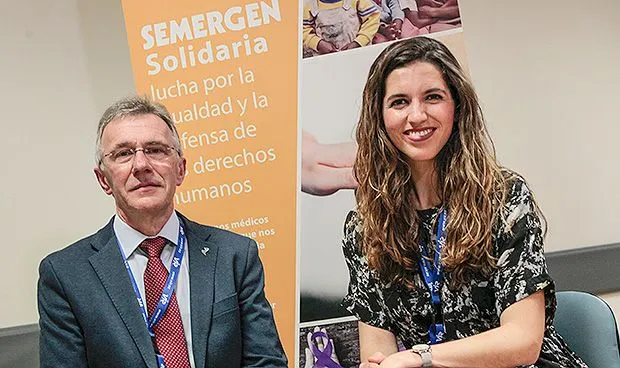The vice president of the Spanish Diabetes Federation (Fede), Aureliano Ruiz, has taken advantage of his appearance during the table on adhesion to organized treatment within the VI National Congress VI Semergen of chronic patients to request that the figure of the educator for diabetic patients be recovered.
The table, which has been moderated by Esperanza Soto, resident of Family Medicine in Córdoba, has pivoted on two axes: the most psychological aspect of the patient, presented by José Luis Bimbela, writer and professional of the area, and Aureliano Ruiz who has contributedThe associative vision.
Aureliano Ruiz, vice president of Fede, has demanded a treatment according to the 21st century.
Ruiz recalled how important the support of the family and the associations of patients is of which, in addition to being part, there is a "staunch defender" because he considers them a "backbone agent" of the patient's psychological livelihood.Ruiz has explained that his body approaches areas with recently diagnosed patients, such as schools, to give talks to teachers and students normalizing the disease.In the case of tutors, Ruiz has assured that they do so to "not be afraid" of the disease.
Remembering a historical request, Fede's vice president has defended that diabetic patients should "become treated as acute to chronicles and, in this way, the type of treatment will vary."
In a political claim, the vice president has made the accounts' to the administration and has assured that "the treatments of the 21st century, which we are not implemented, would save many costs to the system." "We have funds for any type of disease to improve.We are wicked the money, ”Ruiz has re -founded in relation to diabetes.
Esperanza Ruiz, R1 of AP, highlights the importance of forming the patient.
For its part, the R1 Esperanza Soto has highlighted the importance that doctors "know how to inform patients in an appropriate way."Exemplifying its argument in the process of insulin therapy, Soto has suckled the 'mea guilt' and has recognized that, although they do everything necessary to execute a complete consultation, the lack of time makes nursing patients derive “that also alsoIt is very saturated. ”
In this regard, Soto has pointed out the existence of the “missing” educator of diabetics, important in the process and that "used to accompany and train" the patient in aspects that, sometimes, leave aside doctors and nurses when giving them known.
Finally, all speakers have agreed on the importance of family support that, on many occasions, is within patient associations themselves.To this, Bimbela has added the need for the optional "to facilitate" things to the patient.


